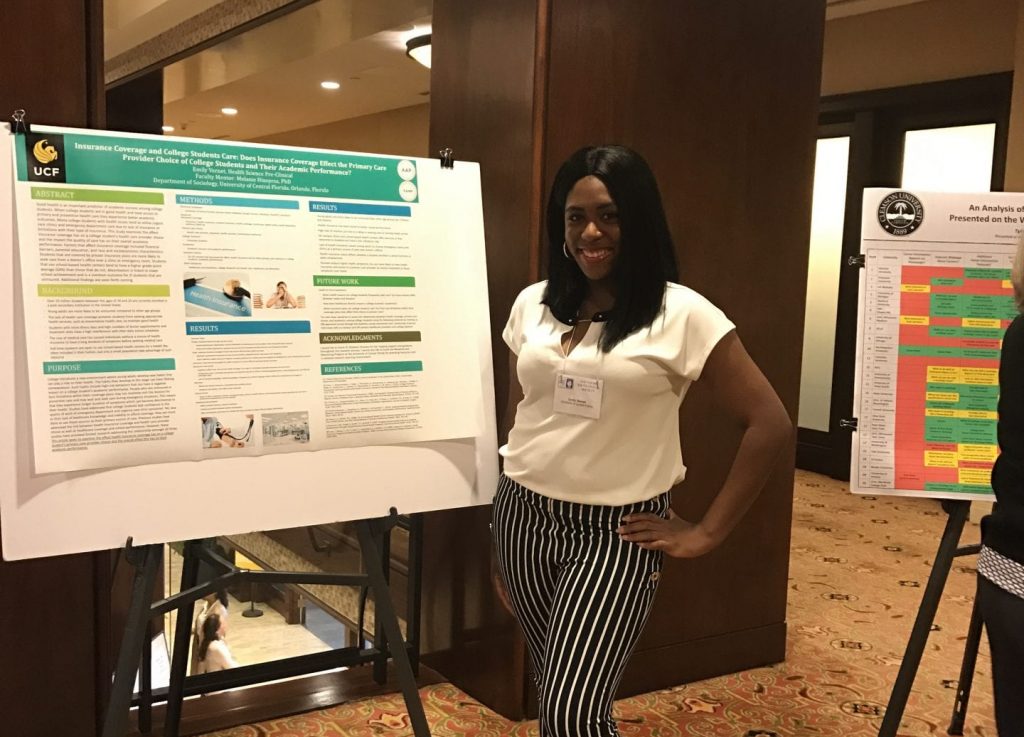Sociology Research Project Show Pre-Med Student Human Side of Medicine

Practicing medicine is as much about compassionate, human interaction as patching up broken bodies.
Pre-med graduate Emily Vernet ’20 got a firsthand understanding of this fundamental truth through an undergraduate research project in partnership with the Department of Sociology. The results, which were published in the Journal of American College Health on January 31, 2021, revealed how health affects academic performance and common barriers for students accessing healthcare.
“I’ve always been more interested in the social side of medicine than the chemistry,” said Vernet. “This study really showed me the variety of experiences students have with their health.”
Vernet’s journey to wearing a white doctor’s coat started with observing a warm bedside manner. Watching doctors in action during her niece’s birth inspired her to pursue medicine, and volunteering at hospitals confirmed that choice. Her interest in the social side of medicine led her to email Associate Professor of Sociology Melanie Hinojosa, Ph.D., whose specialties include families and health.
Hinojosa responded she would be happy to mentor Vernet.
“She was so patient and answered all my questions,” Vernet said. “She pushed me and helped me become comfortable with being uncomfortable. That made me more ambitious to seek out opportunities.”
Those opportunities included designing a research project built around the Andersen Behavioral Model for Health Services Use. The model is a framework for researchers to predict and understand why people use or don’t use healthcare services as broad as dental care and physicians visits.
Walk-up surveys of UCF students required Vernet to overcome her hesitation, learn how to interact with strangers and lead a team of volunteers. They gained double the anticipated responses as a result, and Hinojosa walked her through how to statistically analyze the over 400 answers.
The study showed that resources that influenced accessibility to health services played a major role in students’ health and as a result, how well they did academically. Wait times, parental support and usual source of healthcare were the strongest factors, but other factors such as gender and race were also important.
While she has years ahead of her before adding an “M.D.” after her name, Vernet is already planning to dedicate her career to the human side of medicine. Her inspirations include a doctor she shadowed with a nonprofit dedicated to ending human trafficking.
She’s committed to showing the world what she can achieve.
“You don’t have to limit yourself,” Vernet said. “If you’re really passionate about something you can achieve it.”
